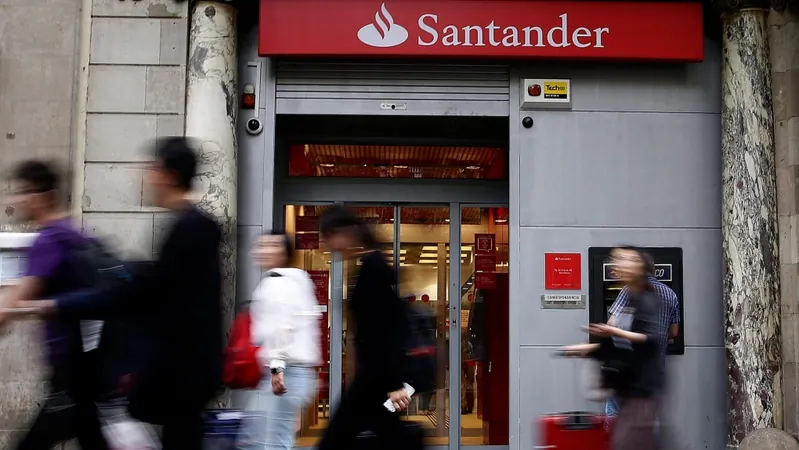
Canada's Immigration System in Crisis: Minister Calls for Immediate Reforms
2024-12-21
Author: Noah
In a candid year-end interview, Immigration Minister Marc Miller laid bare the issues plaguing Canada's immigration system, describing it as "overheated" due to record levels of newcomers. This surge, he argued, has undermined the long-standing belief in the benefits of immigration that have been foundational to Canadian society.
Miller emphasized a pressing need for reform within the immigration system, indicating that better "discipline" is crucial to align it with the nation's capacity to integrate newcomers. In response to the challenges faced throughout 2024, the minister implemented measures to limit student visas, reduce permanent residency admissions, complicate the process for acquiring work visas, and place a pause on most private refugee sponsorship applications.
The spike in immigration levels, which contributed to a population growth of over three percent in 2023—double the average of the previous decade—has led to growing public dissent, largely fueled by inflating housing costs and increasing asylum claims. "We need to respond to the public concern around immigration while acknowledging its necessity for a robust labor force," Miller stated.
With Canada's population aging and birth rates below replacement level, the minister argued that immigration remains vital to economic sustainability and social programs, including healthcare. However, he acknowledged that the government must be responsive to public sentiment to maintain a consensus on immigration's benefits.
One pressing issue highlighted by Miller is the surge in temporary workers. Originally, the program aimed to fill immediate labor shortages, but its rapid expansion has led to instances of exploitation and fraud. Recent government actions have tightened regulations around employer permits—with applications for low-wage positions being rejected in areas facing high unemployment.
Moreover, newly reported investigations have unveiled the concerning sale of labor market impact assessments—essential documents for employing foreign workers—at exorbitant prices. In light of this, Miller noted the necessity of a more scrutinized, transparent immigration process, stating, "We cannot allow our system to be gamed."
The government also plans to implement changes to border control measures in response to potential tariffs threatened by President-elect Donald Trump on commodities imported from Canada and Mexico. This includes requiring temporary residents to apply online for extensions to their status in an effort to curb the controversial practice of "flag-poling," where individuals cross the U.S. border only to return for expedited processing.
In the context of a significant backlog of asylum applications—approximately 250,000 pending claims—Miller announced upcoming reforms aimed at streamlining processing and filtering out fraudulent claims, particularly in light of the highest numbers coming from countries like India and Mexico.
Despite the uphill battle of enacting reforms in a politically charged environment, Miller remains committed to balancing humanitarian duties with realistic immigration capabilities. As he succinctly put it: "We must view these individuals as human beings while also being practical about Canada's ability to manage influx levels."
Stay tuned for more updates as Canada navigates through these evolving immigration challenges that could reshape its very identity.









 Brasil (PT)
Brasil (PT)
 Canada (EN)
Canada (EN)
 Chile (ES)
Chile (ES)
 España (ES)
España (ES)
 France (FR)
France (FR)
 Hong Kong (EN)
Hong Kong (EN)
 Italia (IT)
Italia (IT)
 日本 (JA)
日本 (JA)
 Magyarország (HU)
Magyarország (HU)
 Norge (NO)
Norge (NO)
 Polska (PL)
Polska (PL)
 Schweiz (DE)
Schweiz (DE)
 Singapore (EN)
Singapore (EN)
 Sverige (SV)
Sverige (SV)
 Suomi (FI)
Suomi (FI)
 Türkiye (TR)
Türkiye (TR)